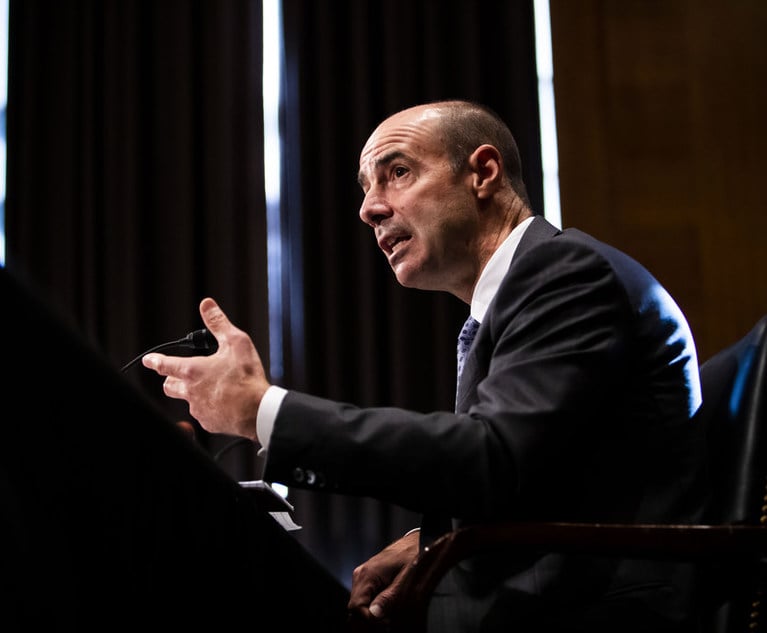The U.S. Supreme Court’s landmark ruling applying the nation’s workplace discrimination law to protect LGBTQ workers revealed intense disagreements within the court’s conservative wing over who properly claimed the mantle of “textualism.”
In a 2015 Harvard Law School lecture, Justice Elena Kagan, underscoring the legacy of the late Justice Antonin Scalia, said, “We are all textualists now.” But in the court’s Monday 6-3 decision in Bostock v. Clayton County, Georgia, textualism clearly meant different things to Justice Neil Gorsuch, who wrote the majority opinion, and dissenting Justices Samuel Alito Jr. and Brett Kavanaugh.

 A gay rights flag outside the U.S. Supreme Court. Credit: Diego M. Radzinschi / NLJ
A gay rights flag outside the U.S. Supreme Court. Credit: Diego M. Radzinschi / NLJ








